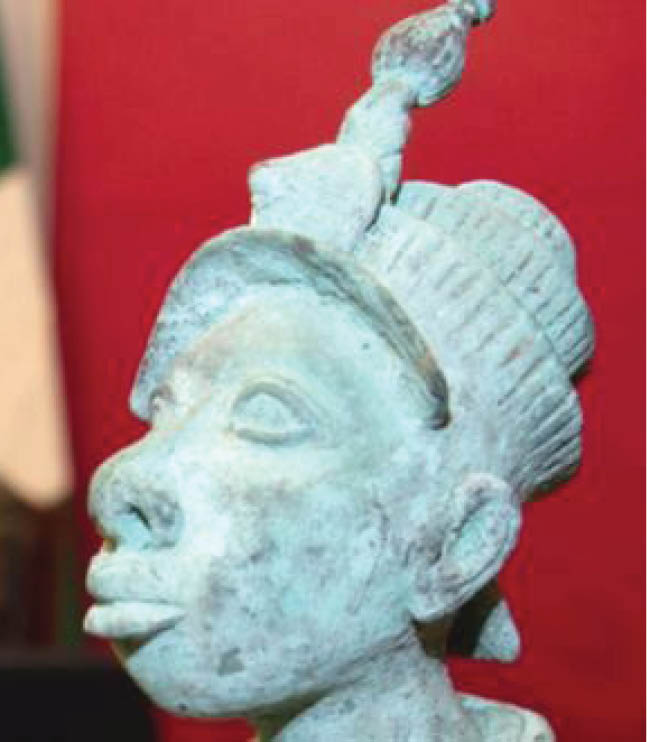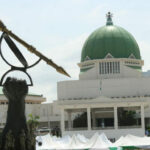On 18th February 1897, a British force of about 1,200 men invaded Benin City, then seat of the powerful Kingdom of Benin, bringing to an end one of Africa’s long-running kingdoms. The invaders looted thousands of prized artefacts and great works of art from the Oba of Benin’s Palace that is today collectively known as the Benin Bronzes, even though many of them aren’t made of bronze at all.
Through auctions and theft, the bronzes found their way to national, university or private museums in European and American cities and beyond. The British Museum in London alone is said to hold no less than 900 items, while the Humboldt Forum, a museum of non-European art in Berlin, holds 530 items. According to the leading industry website, Artnet News, the Benin Bronzes are held in about 160 institutions scattered around the world, including in private collections by the Lehman, Rockefeller, Ford and Rothschild families. Even the great Spanish sculptor, Pablo Picasso is said to have owned some.
- Buhari vows to fish out troublemakers, as FG moves to extradite Igboho
- Buhari hails pilot who ejected safely from jet attacked by bandits
The Benin Bronzes have a huge commercial value. In 2007, a single item sold for $4.74m in New York (about N2 bn in today’s Nigerian naira), a record for a Benin Bronze. And more recently in 2016, art auctioneers Woolley & Wallis of London sold a sculpted head of a youthful Oba for what they called “a substantial seven-figure sum”. But the value of the bronzes in artistic, historical and cultural terms is incalculable. This is why we need them back here at home.
Nigerians and their governments have called for the return of our stolen artefacts since the 1970s. But the story of the imminent return of our Benin treasures from Germany is itself a remarkable one, at least for what ordinary citizens can do to bring about significant change in their communities. In 2004, an unidentified Nigerian man in Agenebode, the headquarters of Etsako-East Local Government Area of Edo State, gave a note to two British Police officers, Steve Dunstone and Timothy Awoyemi, who were on a tourist expedition to Nigeria. The note read: “Please help return the Benin Bronzes.”
On arrival in Britain, Dunstone and Awoyemi decided to make a mission of the Nigerian man’s request. They mounted a frustrating but dogged campaign using social media, events, media appearances and fundraising. Their campaign soon joined with the influential decolonisation movements in European and American institutions, culminating in Germany’s official announcement this year that it will begin restitution of the Benin Bronzes to Nigeria in 2022 and help build the Edo Museum of West African Art in Benin City.
We commend that unidentified Nigerian in Agenebode. We commend Mr Dunstone and Mr Awoyemi—who grew up in Nigeria before moving to London—for their vision and tenacity. We commend the individuals and institutions who have since returned the few items in their possession. Above all, we commend the Oba of Benin, His Highness, Ewuare II, the Governor of Edo State, Mr Godwin Obaseki and the German Federal Commissioner for Culture and Media, Ms Monika Grütters, for their exemplary efforts in setting the stage for the return of our stolen heritage. We believe that the current controversy on who should take possession of the artefacts will soon be addressed and the items will be properly placed so that they can be beneficial to all Nigerians.
We urge other collectors around the world to do the same. The moral burden of holding on to stolen artefacts from other cultures is inescapable in today’s world. The federal government should lead a national concerted effort for the return of all our looted cultural heritage, for rebuilding the deplorable state of our museums, theatres, libraries and other centres of culture and for expanding the scope of tourism in the economy, domestically and internationally. Nigeria has been looking for ways to diversify its economy, tourism is one way it can go and these artefacts will help in no small measure. Above all, we urge all Nigerians to appreciate and participate in the nation’s shared cultures, regardless of origin. Culture matters.

 Join Daily Trust WhatsApp Community For Quick Access To News and Happenings Around You.
Join Daily Trust WhatsApp Community For Quick Access To News and Happenings Around You.


